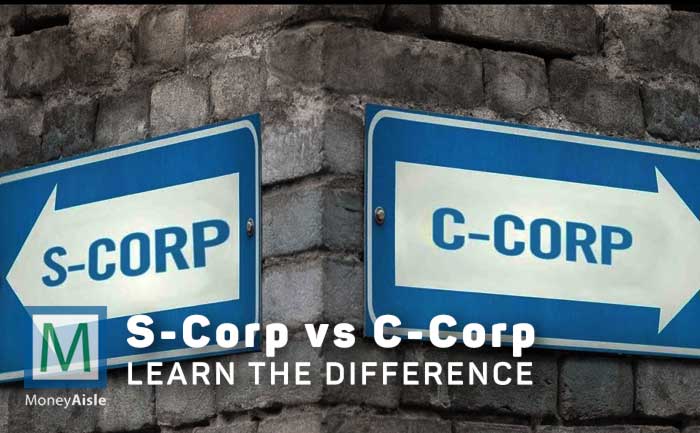Can an LLC go Public? The quick answer is “no” – an LLC, or limited liability company, cannot go public. Therefore, an LLC can not issue shares or have equity ownership that can be bought and sold on the open market as corporations do. However, an LLC can sell units of interest on the stock exchange as a publicly traded LLC.
Typically, an LLC cannot go public. An LLC is a business structure that offers its owners limited liability protection while allowing them to choose how the business will be taxed. However, the ownership or equity stake of an LLC cannot be publicly traded.
Read the full article on the characteristics of a limited liability company.
An LLC can not go public because an LLC is a private entity, and therefore is not subjected to the same regulations as a public company. There are a number of reasons why a business might choose to remain private, including the ability to avoid Sarbanes-Oxley compliance and the need to disclose financial information.
However, there are also some disadvantages to being a private company, such as the inability to raise capital through an initial public offering (IPO).
Now you understand that an LLC can not “go public” in the same sense as an S or C corporation. But can an LLC be publicly traded? The answer is yes. It is possible for an LLC to become a publicly traded company. The other alternative for an LLC to go public is to convert the LLC into a corporation through statutory conversion.
Publicly Traded LLC
Since an LLC can not go public, there are a few ways that an LLC can become a publicly traded company. One way to do so is to operate as a publicly traded LLC.
LLCs, in specific situations, can be designed to have units traded on the stock exchange. Such LLCs are called publicly traded LLCs. Given the flexible nature of the LLC, you can have units traded on the securities exchange by structuring your LLC as a publicly traded partnership (PTP).
However, there are some conditions that you must fulfill to convert your private LLC into a publicly traded LLC. Let’s have a look at how it is done:
How Can an LLC be Publicly Traded
An LLC needs to fulfill the following criteria to operate as a publicly traded LLC:
- The LLC members have to elect that LLC would be taxed as a partnership
- In the LLC operating agreement, there must be clauses explaining the LLC’s ability to assign, transfer, and sell LLC ownership rights
- The LLC must be structured as a publicly traded partnership or PTP
How Publicly Traded LLCs Work
By issuing units of interest on the stock exchange, many LLCs in the energy and natural resources sector are trading publicly. However, it is different from the issuing of stock as done in corporations.
To understand the difference between the operations of LLCs and corporations, read our article on S Corp vs C Corp vs LLC vs LLP.
In publicly traded LLCs, the issuance of LLC units means the LLC issues its shares. In such a situation, the units represent LLC equity or ownership. Moreover, some states exempt managers of publicly traded LLCs from fiduciary duties.
However, lacking fiduciary duties does not mean LLC managers are not regulated. Like other publicly-traded entities, publicly traded LLCs need to be registered with the Securities and Exchange Commission (SEC).
The Securities Exchange Act of 1934 (’34 Act) and the stock exchanges such as the New York Stock Exchange impose governance rules. All companies in the stock market must meet that degree of discipline. Moreover, these rules provide mechanisms to monitor management’s conduct.
However, unlike corporations, publicly traded LLCs are not subjected to strict stock exchange rules such as disclosing governance standards, maintaining an audit committee, etc.
Important
In some cases, privately held LLCs can also raise capital for the business. To do so, they sell membership interests to third parties. However, they are different from publicly traded LLCs, as you can acquire an interest in the LLC but you will not be given the right to participate in the business.
The third parties whom LLC members can sell an LLC ownership interest include family members, friends, or individuals close to the LLC members.
Advantages and Disadvantages of Publicly Traded LLCs
The advantages and disadvantages of having an LLC that is publicly traded are nuanced, but understanding them is crucial to making the best decision for your business.
Alternatives to Publicly Traded LLC to Raise Capital
In today’s economy, small businesses are always looking for new and innovative ways to raise capital. Where LLC offers several advantages over sole proprietorships, general partnerships, LLP, corporations, etc., one of the drawbacks is limited options to raise capital.
These are the times when LLCs look for opportunities to generate funds in order to expand their business. Let’s discuss a few alternatives to publicly traded LLCs through which a business can expand and seek investors.
Converting LLC into an S or C Corporation
A statutory conversion allows an LLC to convert its legal status from an LLC to an S corp or C Corp. It involves changing the Articles of Organization with the state by submitting articles of conversion.
Converting an LLC to a corporation can be beneficial for businesses that are looking to expand their operations. Statutory conversion can help businesses tap into new sources of capital, which can ultimately lead to growth and success.
LLC Mergers
LLC merger allows an LLC to merge the LLC with other companies such as partnerships, corporations, or any other LLC resulting in one company.
Through an LLC merger, the LLC could merge with another company that is already publicly traded. This would give the LLC’s owners shares in the new company, which could then be sold on the open market.
Selling LLC’s Assets to a Publicly Traded Company
An LLC can also sell all of its assets to a publicly traded company. For this, LLC needs to go through the LLC dissolution process. While this would mean that the LLC would no longer exist as a separate entity, it would allow its owners to cash out their investments.
To Sum Up
In this article, we tried to cover every aspect of the question “Can an LLC go Public?” and “Can an LLC be Publicly Traded?” Moreover, we also discussed what it means to have a publicly traded LLC. Ultimately, whether or not an LLC should go public depends on a variety of factors specific to your business.
If you’re thinking about taking your company public, it’s important to consult with legal and financial experts who can help you assess the pros and cons of doing so.
With the right preparation and planning, operating as a publicly traded LLC can be a great way to grow your business and generate more revenue for years to come.
References
- https://scholar.smu.edu/cgi/viewcontent.cgi?article=1071&context=smulr
- https://www.irs.gov/businesses/small-businesses-self-employed/llc-filing-as-a-corporation-or-partnership
- https://clsbluesky.law.columbia.edu/2016/01/05/the-governance-of-publicly-traded-llcs/

Aisha Noreen is an owner of a small business with more than 9 years of experience in the marketing industry. With the wisdom of an old soul, she always seeks innovation and mind-blowing ROI techniques. Her unique approach helped many small businesses thrive and she can surprise you in many ways as well. Believe it or not, her energy, passion, and creativity are contagious enough to transform your business and take it to another level.







